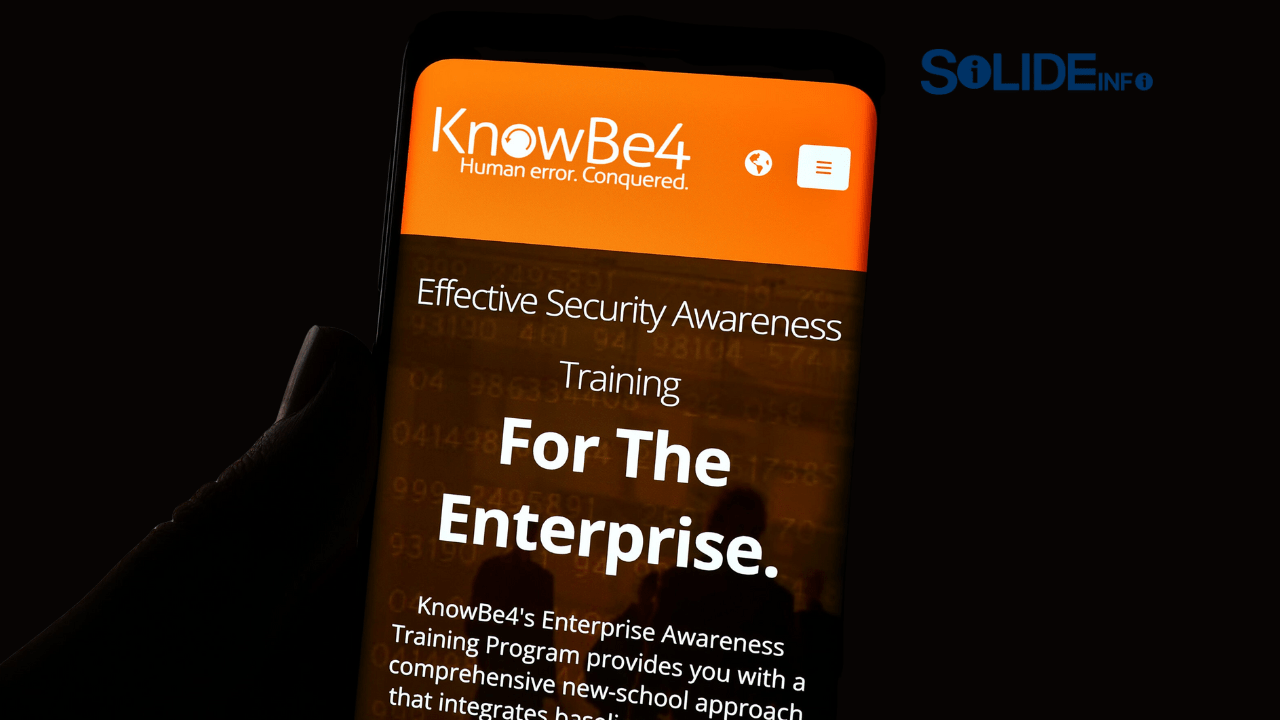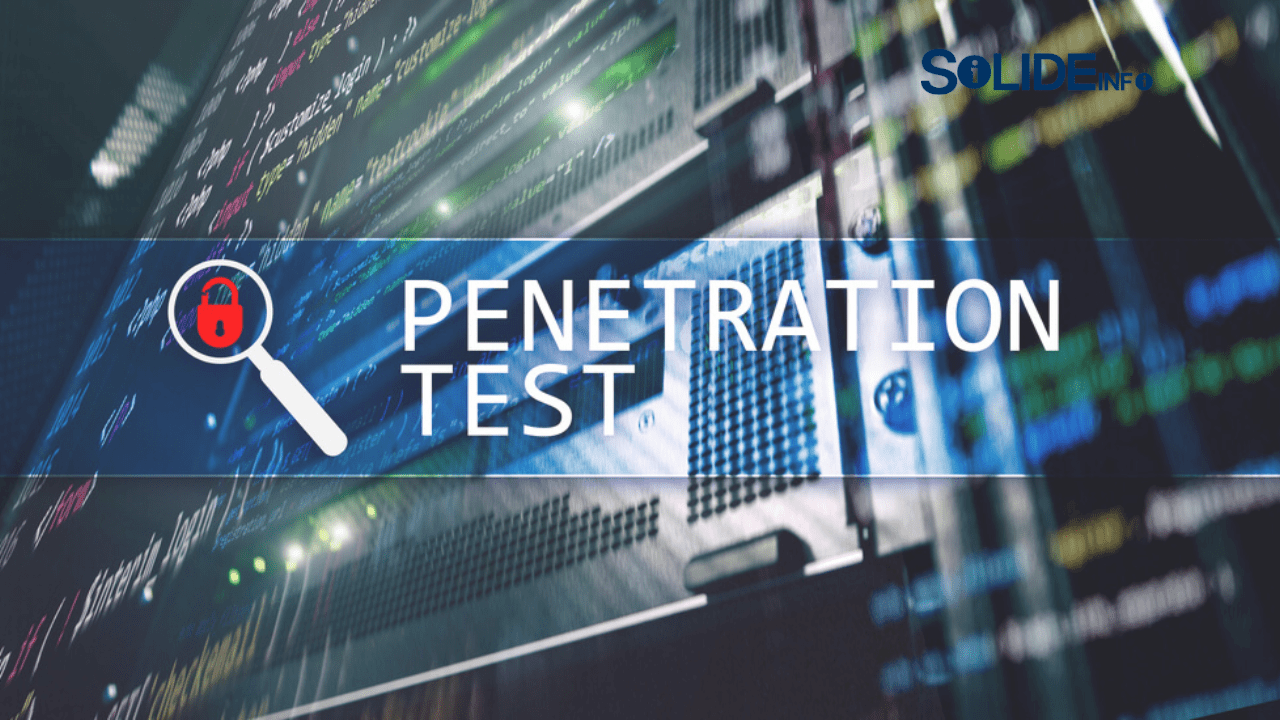The Human Factor: Why Security Awareness Training like KnowBe4 is Essential

You’ve probably heard it a million times: your employees are your greatest asset. But in cybersecurity, they’re also often the biggest risk. It’s a funny thought, isn’t it? The most expensive firewalls and the most advanced security software can be completely useless if a single employee clicks on a sketchy link. This is why security awareness is no longer a “nice to have” but a “must-have” for any organization. It’s about empowering people to become the first and most critical line of defense. Instead of just installing tech to stop attacks, we need to educate the people who use that tech. This is where a dedicated program like KnowBe4 training becomes a total game-changer. It’s a proactive solution designed to tackle the most common entry point for a cyberattack—human error. This article will break down why focusing on the human element is so vital and how platforms like KnowBe4 are revolutionizing the way companies protect themselves from phishing, social engineering, and other common threats. We’ll show you why this type of training is so effective and how it can turn your staff from a vulnerability into a security superpower.
Why the Human Element is the Weakest Link
“We had all the security bells and whistles, but a new hire clicked on a link in a fake invoice email. The ransomware was inside our network in minutes. We learned the hard way that our tech is only as good as the person using it.” — A small business owner on a discussion board.
That story is a lot more common than you might think. Statistics show that the vast majority of data breaches, over 80% according to some reports, have a human element involved. It’s not because people are bad at their jobs; it’s because cybercriminals are masters of manipulation. They don’t try to hack your firewall; they try to hack your employees. These are a few of the sneaky tactics they use:
- Phishing: This is the most common form of attack. A hacker sends a fraudulent email that looks legitimate, trying to trick a user into clicking a malicious link or giving up personal information. They prey on our sense of urgency or curiosity.
- Social Engineering: This is the art of manipulating people to give up confidential information. It can be as simple as a phone call pretending to be from IT support or a message on a social media site.
- Weak Passwords: People often reuse simple passwords across multiple sites, making it easy for a hacker to get into multiple accounts once they have a single password.
These aren’t technical problems; they’re human problems. And you can’t fix a human problem with just a software update. You need to fix it with education and reinforcement. This is the core reason why security awareness training is so vital. It’s about building a culture where security is everyone’s responsibility. It’s not just a set of rules from IT; it’s a shared commitment to keeping the company safe. For more about this topic, check out our guide on cybersecurity threats.
The Power of KnowBe4 Training: A New Approach
Traditional security awareness training often meant a boring, once-a-year presentation that people quickly forgot. A platform like KnowBe4 turns that model on its head by making the process continuous, interactive, and engaging.
Simulated Phishing: The Realistic Test
One of the most powerful features of KnowBe4 training is its simulated phishing platform. Instead of just telling employees what a phishing email looks like, the system sends them a harmless, fake one. If an employee falls for the trap and clicks the link, they are immediately taken to a page that educates them on what they did wrong and why it was a mistake. This provides an instant, teachable moment that reinforces the lesson far more effectively than a lecture. For the security team, it provides invaluable data, showing who might need a little extra help and how the overall company’s “phish-prone” percentage is improving over time. The results can be dramatic; some reports show that regular phishing simulations can reduce the rate of clicks on malicious links by over 90% in just a few months. It’s a practical, hands-on way to make sure the lessons stick.
Engaging and Up-to-Date Content
Another reason why KnowBe4 training stands out is its content library. They offer a massive, always-fresh collection of videos, games, posters, and newsletters that are actually fun to consume. The content is designed to be short, engaging, and easy to understand for everyone, regardless of their technical background. It covers everything from how to spot a fake website to the importance of using a VPN on public Wi-Fi. It keeps the topic of security awareness from becoming stale by constantly providing new and relevant information. This is especially important as cybercriminals are always developing new methods, like attacks that use QR codes or text messages. The training content adapts to these new threats, ensuring your employees are always prepared for what’s coming next. This is a far cry from the old-school, stuffy presentations that put people to sleep. It’s an effective way to keep people engaged and learning continuously, which is what’s needed in today’s fast-paced threat landscape. You can learn more about how technology is changing the game by visiting our resources on AI and machine learning.
The Benefits of a Strong Security Awareness Culture
Implementing a program like KnowBe4 does more than just reduce phishing clicks; it builds a foundation for a stronger security culture across the entire organization.
It’s a Proactive Defense
Instead of just waiting for something to go wrong, security awareness training gives you a proactive defense. It empowers employees to become active participants in security. They learn to question suspicious emails, report unusual activity, and follow best practices. This turns them from a passive target into a human firewall that actively helps protect the company. The sooner a suspicious email is reported, the sooner the security team can investigate and neutralize a potential threat before it spreads. This can dramatically reduce the time it takes to respond to a cyber incident, minimizing potential damage and cost.
It Saves Money
A data breach can cost a company millions of dollars in fines, legal fees, and reputational damage. By investing in KnowBe4 training, you are making a strategic investment that can provide a huge return. A study by the Ponemon Institute found that the average cost of a data breach is over $4 million globally. Preventing even one of these incidents can easily pay for years of security training. In fact, many organizations find that the ROI on this type of training is significant, as it helps prevent costly mistakes and keeps operations running smoothly. Protecting your digital assets is a critical part of a comprehensive strategy, just like managing your finances, and you can find more tips on that in our article about budgeting.
It Helps with Compliance
Many industries are subject to strict regulations like GDPR, HIPAA, or PCI DSS. A key component of these regulations is often a requirement for regular security awareness training. Having a robust program in place demonstrates to auditors and regulators that your organization is taking the protection of sensitive data seriously. It’s not just about ticking a box, though; it’s about genuinely reducing risk and showing a commitment to data privacy. This is an essential aspect of modern business operations, and platforms like KnowBe4 make it much easier to manage and document this process.
The truth is, technology alone will never be enough to stop all cyber threats. As long as there are people, there will be a “human factor” that attackers can try to exploit. The solution isn’t to trust technology blindly but to invest in the people who use it. By making security awareness a priority and using a platform like KnowBe4 training, you’re not just teaching your employees; you’re building a culture of vigilance and resilience. You are transforming your entire workforce into your most powerful security asset, making the organization safer and more prepared for the digital world. The journey to a more secure environment is a marathon, not a sprint, and continuous education is the fuel that keeps everyone moving in the right direction. For more information on why this is so important, you can check out a trusted external resource like the National Cyber Security Centre (NCSC) for their guidance. You may also find our article on WordPress security useful for more specific application advice.
What’s the best security tip you’ve ever received? Drop a comment below and share it with the community!




